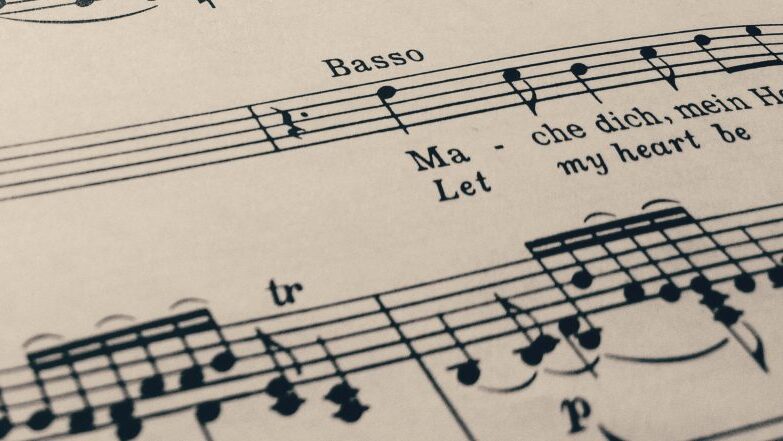

2024 marks the centenary of the death of Sir Charles Villiers Stanford, one of the most eminent composers in the early 20th Century with a well-deserved musical legacy. His time as a Professor of composition at the Royal College of Music saw him mentoring some of the most iconic voices of early twentieth-century British music, including Vaughan Williams, Gustav Holst, and Herbert Howells. Stanford’s own works span seven symphonies, five concertos, chamber music, operas, and choral masterpieces.
Though much of his secular music has gradually faded from regular concert programming, Stanford’s contributions to church music have remained central to the British choral repertoire. His anthems, canticles, and motets are revered, having become integral to the repertory of cathedral and church choirs throughout the United Kingdom. Knighted in 1902, Stanford’s legacy endures, woven into the very fabric of British music.

Stanford was born in Dublin in 1852, and showed exceptional musical promise from an early age, no doubt helped by a succession of teachers in violin, piano, organ, and composition. Despite the wishes of his father for him to become a lawyer, he was awarded an organ scholarship at Queen’s College Cambridge to compliment his study of Classics. After being awarded his degree (after ranking 65th out of 66), he turned his focus to a career in music. Initially employed as organist for Trinty College Cambridge, he later ventured to further study at Leipzig Conservatoire, one of Europe’s most respected musical institutions for much of the 19th century.

By the age of 30, Stanford had returned to England, stepping into a distinguished role as professor of composition and conductor of the orchestra at the newly founded Royal College of Music in London. This appointment marked the beginning of a lifelong commitment to teaching and to nurturing a new generation of British composers—a legacy that would define Stanford’s career and shape the future of British music.
Stanford’s Three Motets, Op. 38, for unaccompanied choir, was published in 1905, although it is thought to have originated in 1892, which coincides with his departure from his role as organist at Trinity College. These motets were dedicated to his successor, Alan Gray, and to the college choir – a trinity of motets for the choir of Trinity College.

The first motet, Justorum Animae, is in three sections. The first and last tell of God’s mercy toward the righteous, contrasting vividly with the central section, which illustrates the torment that would be faced in the absence of such mercy. Beati quorum via is written in six parts, with divided soprano and bass sections that lend it a contemplative, meditative quality that gives this piece a reputation as one of his finest unaccompanied works. Coelos ascendit hodie, is written for Ascensiontide and employs a double choir with dramatic antiphony. Its climactic “Amen” begins as a single note, expanding gradually into a resplendent eight-part chord.
The sudden passing of Mary E. Coleridge, a gifted novelist and poet, at age 45 left an indelible mark on those who knew her, including Stanford. When she succumbed to illness, Coleridge left behind a trove of unpublished manuscripts and poetry, much of which was published posthumously in 1908. Stanford set a total of sixteen of her poems in choral settings, eight of which form Eight Partsongs, Op. 119, extoling themes of natural beauty and transience.

The Witch follows the more traditional idiom of a part song, with its strophic, homophonic setting. The eponymous witch is tired from the road, and wishes to be invited in to the warmth of the indoors – the final verse suggests that that Witch’s presence ensures that the warmth is now no more. The Blue Bird is often considered to be the Jewel in the crown of English secular music. Coleridge originally published the poem in French as L’Oiseau Bleu, but it is the English version the Stanford presents. The Soprano soloist, floating above as the blue bird soars over the landscape below serves to strengthen the notion of fleeting beauty. The Train is not a subtle song – vividly depicting the thunderous advances of the railway through the night – making the world an ever-smaller place with its speed. The Inkbottle (perhaps ironically)serves a warning on the dangers of writing – Stanford portrays the mischief of love letters with playful rhythms, and the colours through chromatic harmony. The warning – don’t believe all you see in ink – is perhaps still relevant today as it was in the turn of the 19th century.
Oh! for a closer walk with God draws its text and tune from the Scottish Psalter (1635) and demonstrates Stanford’s mastery of harmony and organ writing particularly in the highly expressive final verse with its combination of fervour and spiritual confidence.
Stanford’s most enduring choral works are his Canticles – a setting of texts for the Anglican services of Matins and Evensong. He wrote his Service in B♭ Major, including the Magnificat (song of Mary) and Nunc Dimittis (song of Solomon) in 1979 when he was again organist of Trinity College. Its grandiloquent nature and memorable melodies leave this setting as a firm favourite amongst choral musicians.
The First World War had a profound impact on Sir Charles Stanford, both personally and professionally. Deeply unsettled by the threat of air raids, he relocated from London to Windsor for safety. The war brought tragedy to many of his former students, with whom he had forged strong bonds during his long tenure at the Royal College of Music. Among them, Arthur Bliss was wounded, Ivor Gurney suffered lasting effects from a gas attack, and George Butterworth was tragically killed in action. For Lo I Raise Up represents Stanford’s stance on war, expressing his hopes for Britain’s eventual deliverance. Stanford turned to the Old Testament prophecies of Habakkuk, crafting a poignant analogy between the prophet’s vision and the wartime devastation he witnessed. The opening reflects the turmoil and despair brought about by war, yet amidst the relentless violence, Stanford evokes Habakkuk’s promise of peace and redemption. In a powerful shift to F major, the work culminates with a climactic statement of faith and resilience: “We shall not die.” Here, Stanford not only captures a moment of hope but also offers a testament to the enduring spirit of a nation longing for peace and renewal.
Samuel Foxon. November 2024
If you wish to use or adapt any part of these notes, please do get in touch!


Leave a Reply